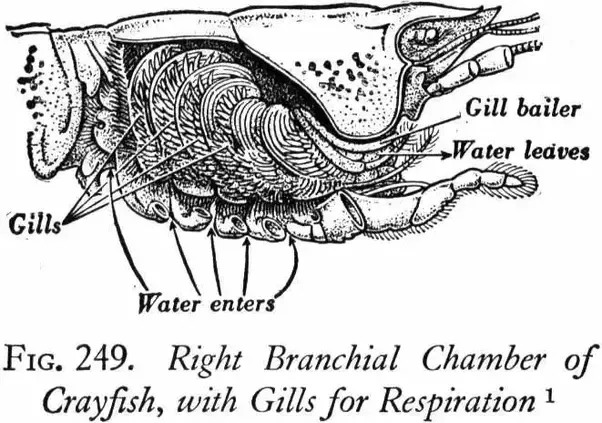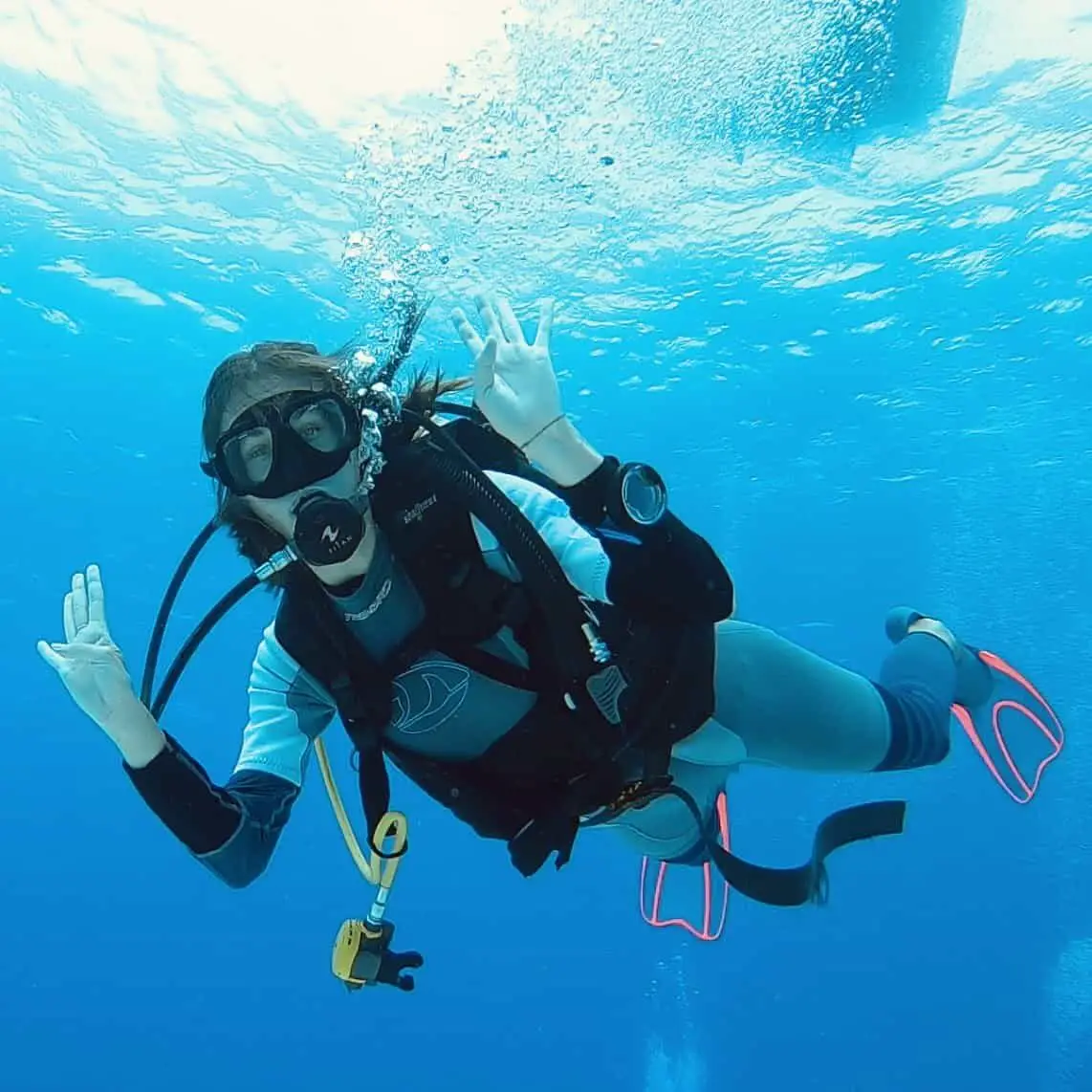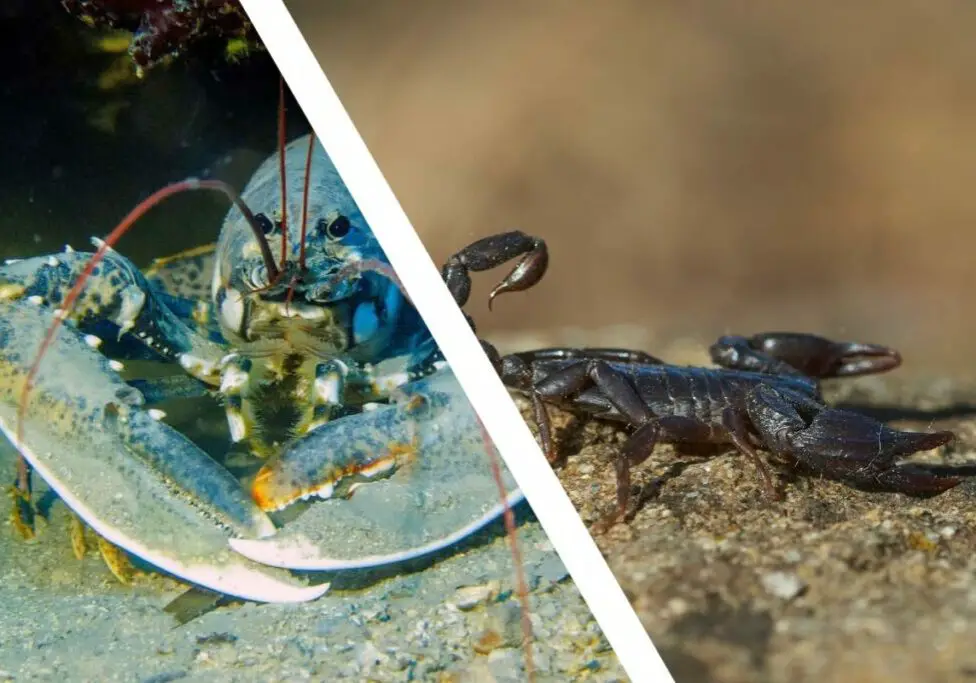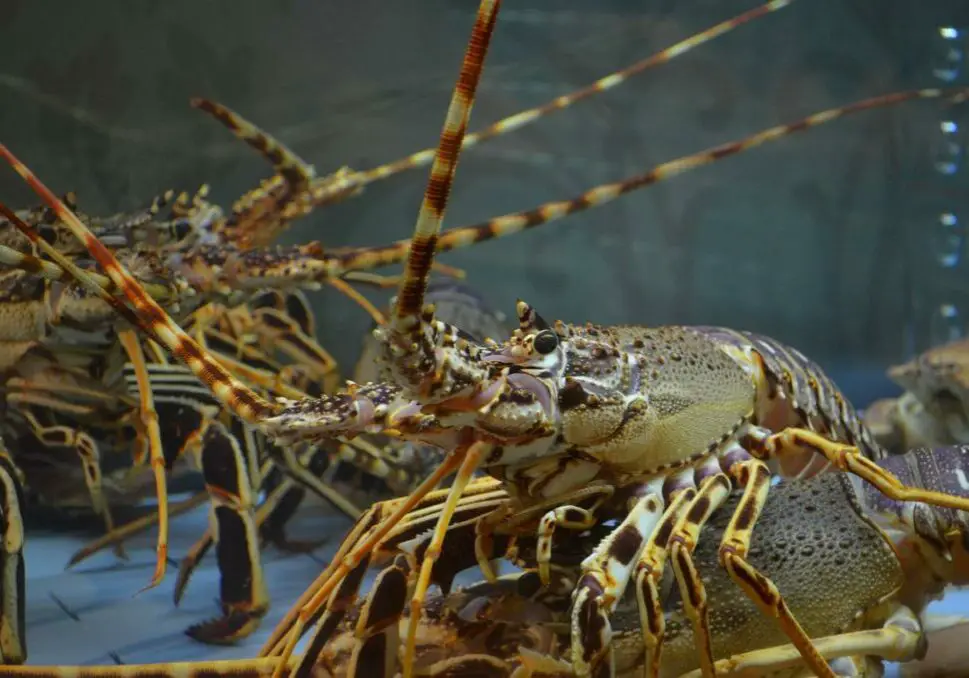Can Lobsters Breathe Air? (Explained)
Lobsters are close relatives to crabs which we can often see walking on the beach or rocky shores without being in the water. Have you ever wondered if lobsters can breathe air, or are they exclusively marine animals? In this post, we’ll talk all about that but let’s begin with a quick answer:
Lobsters cannot breathe air directly, instead, they need water on their gills since they extract oxygen from the water.
However, this certainly doesn’t tell the whole story. Below, I’ll explain more about how lobsters absorb oxygen, how long they can survive out of the water, and what happens when they’re exposed to air. Furthermore, I’ll explain whether lobsters can drown or not or if they can survive in freshwater. Read on!
How do lobsters get oxygen?
Lobsters breathe oxygen from the seawater using their gills. These gills are protected by the gill chamber and made up of feathery-like filaments. The water enters through the openings between lobsters’ legs and goes over the gills, where the animal removes oxygen from it. Next, it goes up towards the head.

Interestingly, the oxygen consumption rate correlates with water temperature, degree of crowding, feeding, and animal size as smaller animals usually consume more oxygen. When it comes to the water temperature, the amount of oxygen decreases as the temperature rises. Usually, lobster best enjoys temperatures between 16 – 18°C (61 – 64°F).
Can lobsters live out of water?
Lobsters can survive out of the water but only for a short period of time. They can absorb oxygen from the air by the water on their gills. That’s why they can do that only if their gills are moist. If they become too dry, they will move closer together, reducing the amount of oxygen the animal can absorb. Eventually, they will collapse, causing suffocation.
Lobsters will suffocate if they staye long out of the water, but they can usually survive for about two days in a cool environment. This is why sometimes (but it’s rare) they come close the shore to search for food or to stay in the relatively warmer offshore waters. However, unlike crabs, they usually don’t live on the shore or beach.
Interestingly, lobsters’ close relatives – crabs, can actually survive out of water for longer also by keeping their gills moist. When it comes to fish, they can’t survive longer than a few minutes out of the water, so it’s important that you don’t take them out.
A coconut crab is actually a species whose gills evolved into the branchiostegal lungs. They’re a spongy tissue, something between gills and lungs. They still need to be kept moistened, but they can actually exchange gas with the air. Lobsters, however, do require water in the gas exchange.
What happens when lobsters are exposed to air? (Experiment)
Scientists conducted an experiment during which J. edwardsii lobster species were held in the air for 8 hours at the temperature of 17 ± 1˚C (62.6 ± 64.4°F). For each of the ten lobsters, they made measurements of oxygen consumption, osmolality and heart rate. They measured them after 48 hours of settlement in water test chambers and after 8 hours without water to compare the results.
After 2 hours of animals being exposed to air, the oxygen consumption rate fell significantly to 56%. However, oxygen uptake partially recovered during the emersion period, reaching 70% of the aquatic value in the interval between 6 and 8 h of emersion.
After lobsters were put back into the water, the oxygen consumption rate increased 2.5 times compared to the resting period before the experiment and nearly four times the final value measured in air. After that, the rate gradually declined and reached a regular level after about 24 hours.
When it comes to the heart rate, it fell to about two-thirds of the aquatic rate over the first hour but fully recovered after.
Can lobsters drown?
In general, lobsters cannot drown, but they can suffocate underwater as they need a proper lever of oxygen absorbed from the water. These animals are very sensitive, and if the water temperature isn’t suitable or the oxygen in the water has been used up, they will suffocate.
Can lobsters survive in freshwater?
Lobsters are exclusively marine animals and cannot survive in freshwater due to their state of isotonic stability with the surrounding saltwater. This means that the same amount of water moves between body tissues and the salt water.
Lobster bodies’ tissues, the cells, have a permeable membrane that allows water to flow in and out of the cell body, helping to soothe the cell’s vital needs. Based on chemical principles, the water will always flow to an area with a higher concentration of salts and minerals through a permeable membrane.
In freshwater, the state between the lobster and the surrounding water is unstable. The cells of the animal contain higher ions of salt and other minerals. Water invades cells, causing them to swell and eventually break. This kills cells as minerals try to diffuse into the water and dilute.
Do lobsters walk on land?
Unlike crabs, lobsters don’t usually come up on land and stay there. Some lobsters live in shallow waters, but most of the time, they prefer deeper oceans. These animals also don’t like very warm temperatures, which is very often a case on the shore. They prefer temperatures from 15-18°C (59-64°F).
Lobsters mainly eat fish, crabs, mussels, clams, sea urchins, and sometimes even other lobsters. Crabs that live on the beach, however, feed on microscopic plankton, mollusks, other smaller crabs, algae, and whatever they find in the sand. For lobsters, this diet probably woudn’t be enough.
With that being said, lobsters don’t live on land because they can’t survive long out of the water but also because of their diet and habitat. Hot shores or beaches wouldn’t be a perfect place for them.
Sources
- Taylor, Harry & Waldron, Francesca. (1997). Respiratory responses to air-exposure in the southern rock lobster, Jasus edwardsii (Hutton) (Decapoda:Palinuridae). Marine and Freshwater Research – MAR FRESHWATER RES. 48. 10.1071/MF97071.
You may also like:

Welcome to Bubbly Diver!
I’m glad to see you here. This blog is created for all marine creature lovers by a bubbly diver - me, Dori :)


